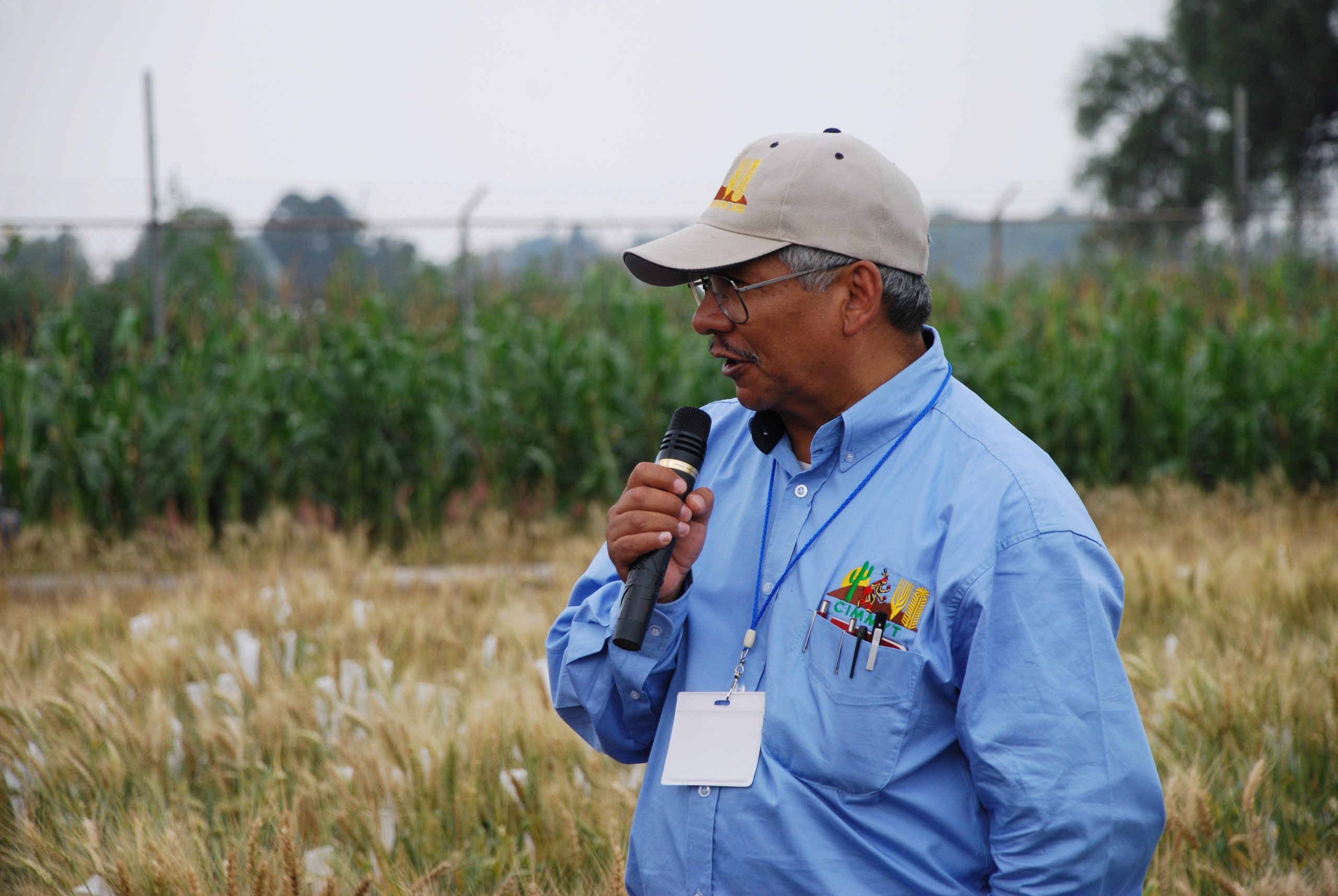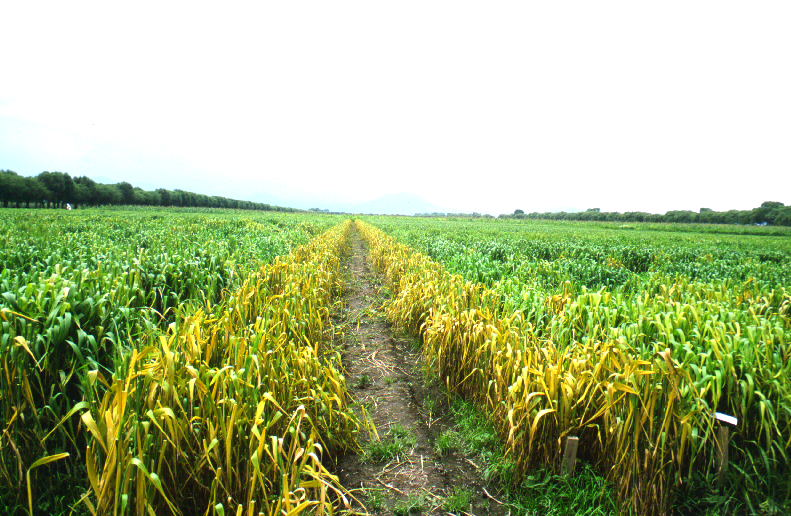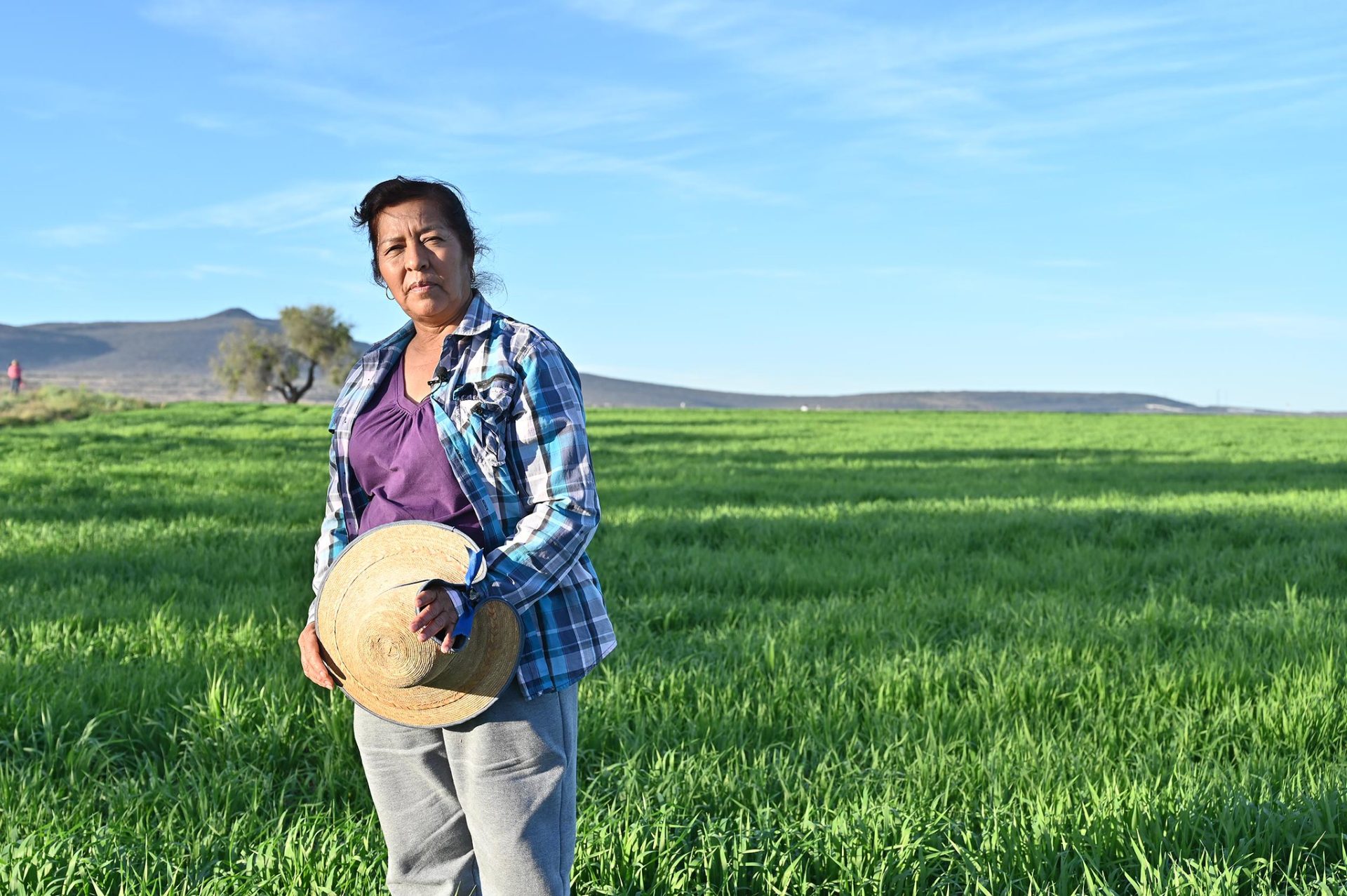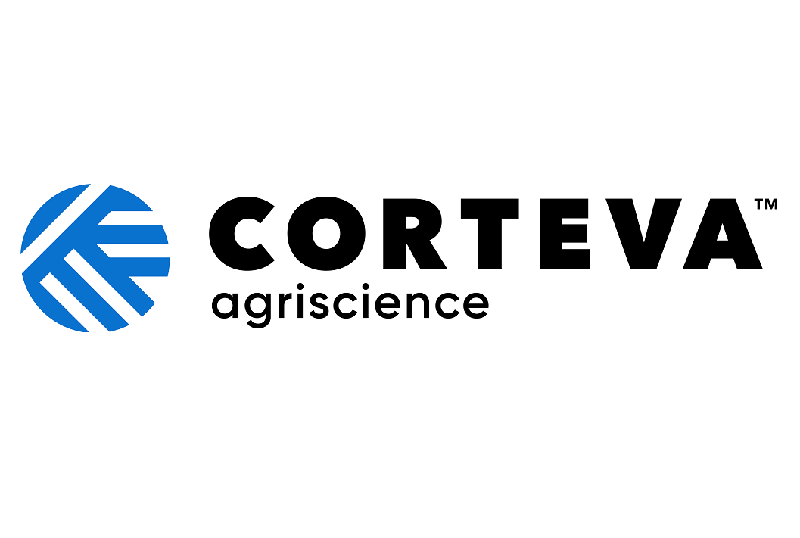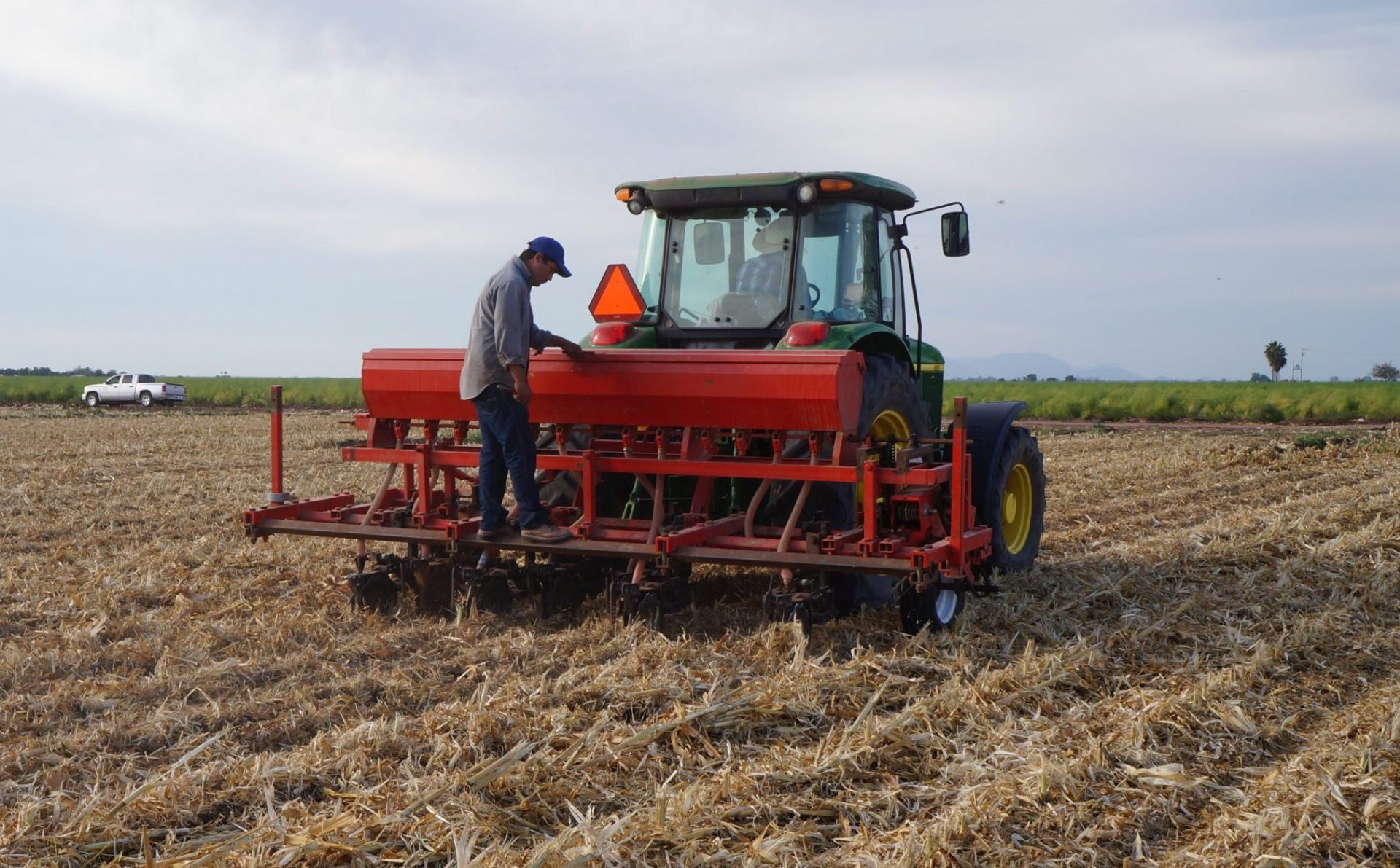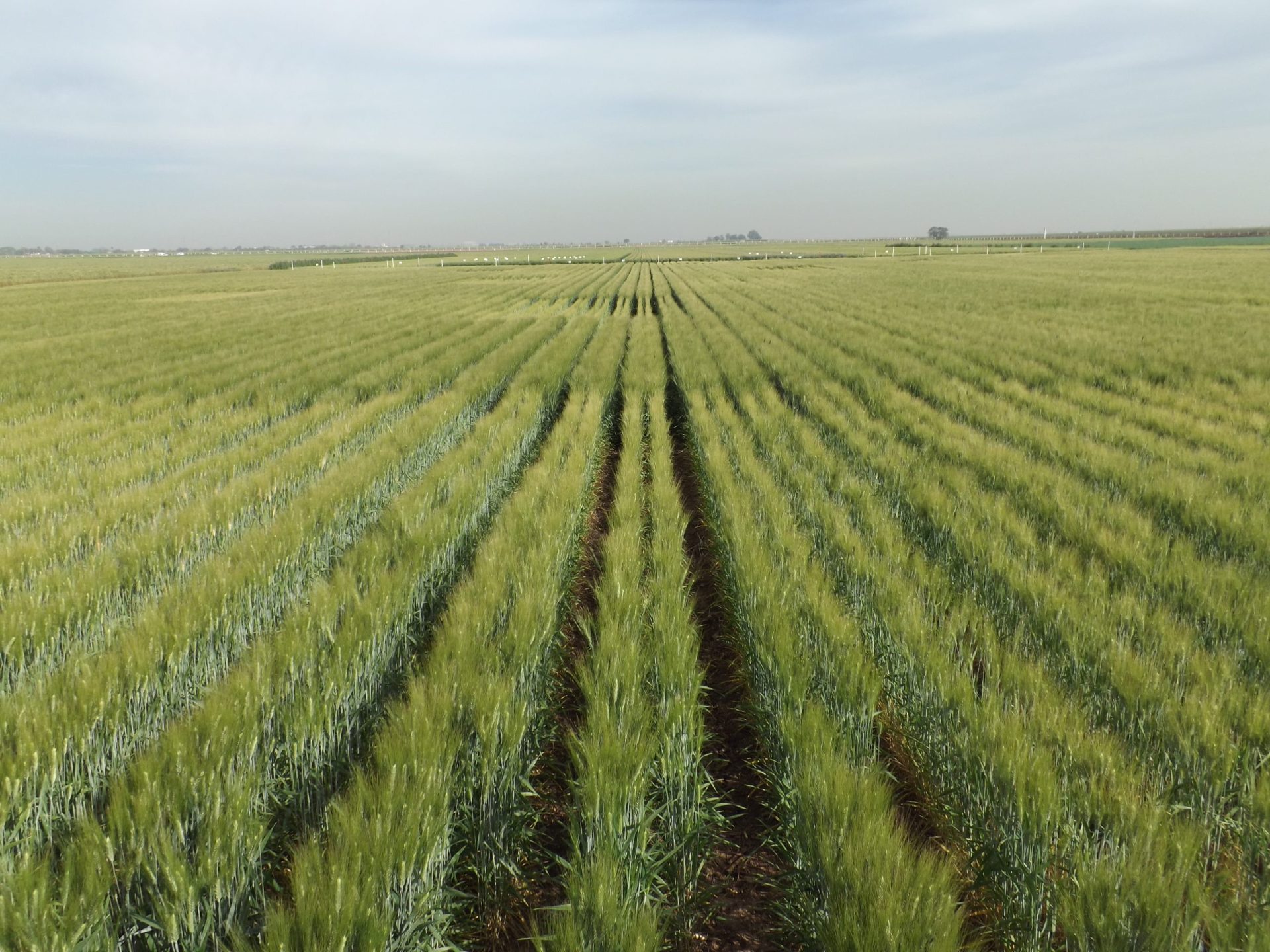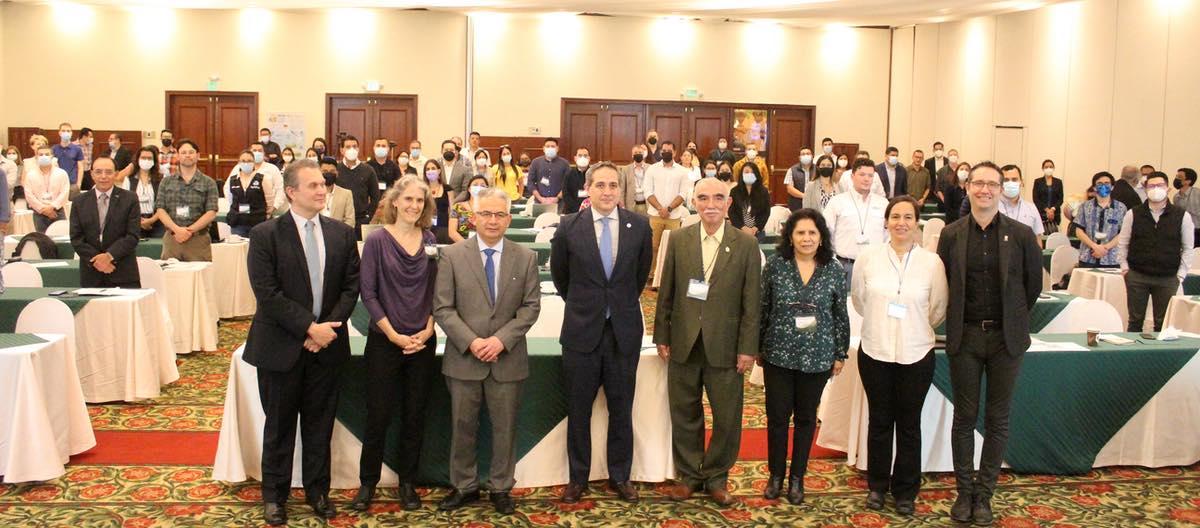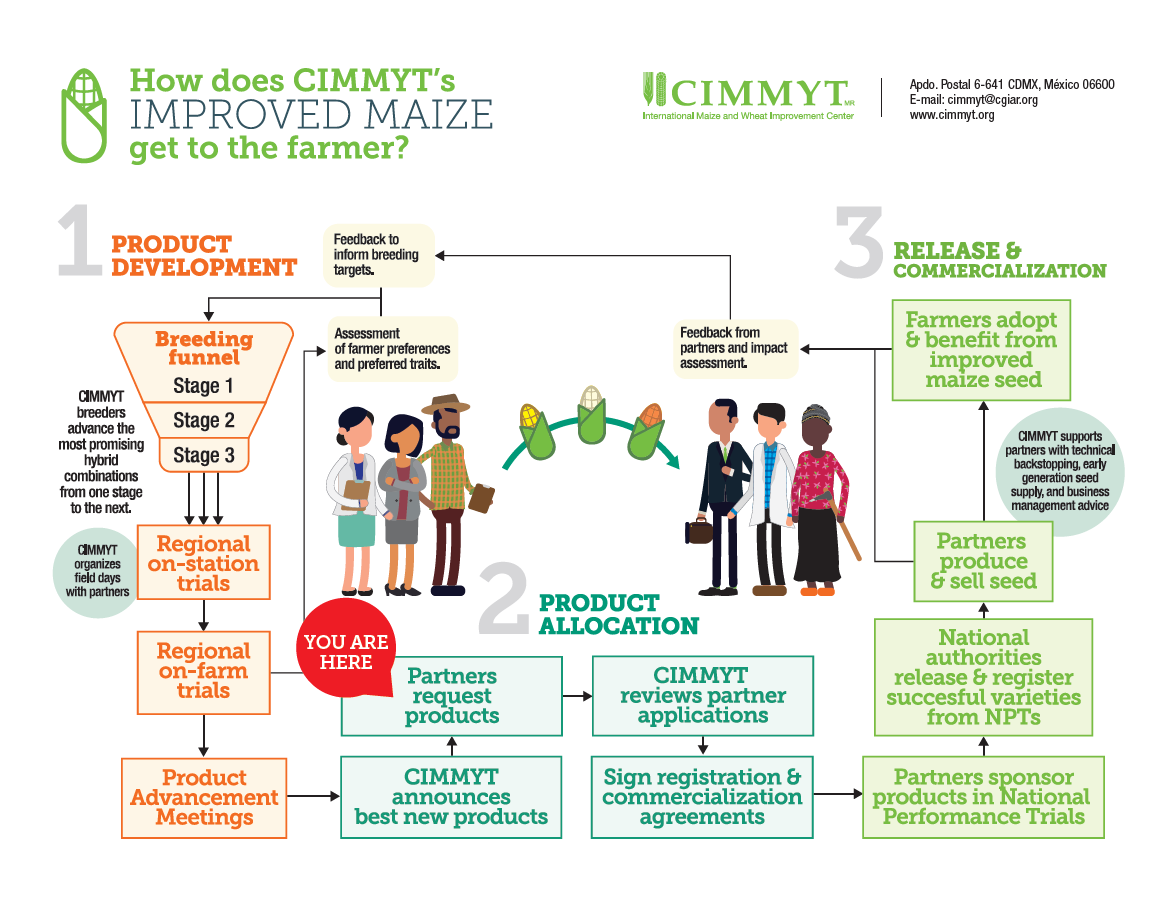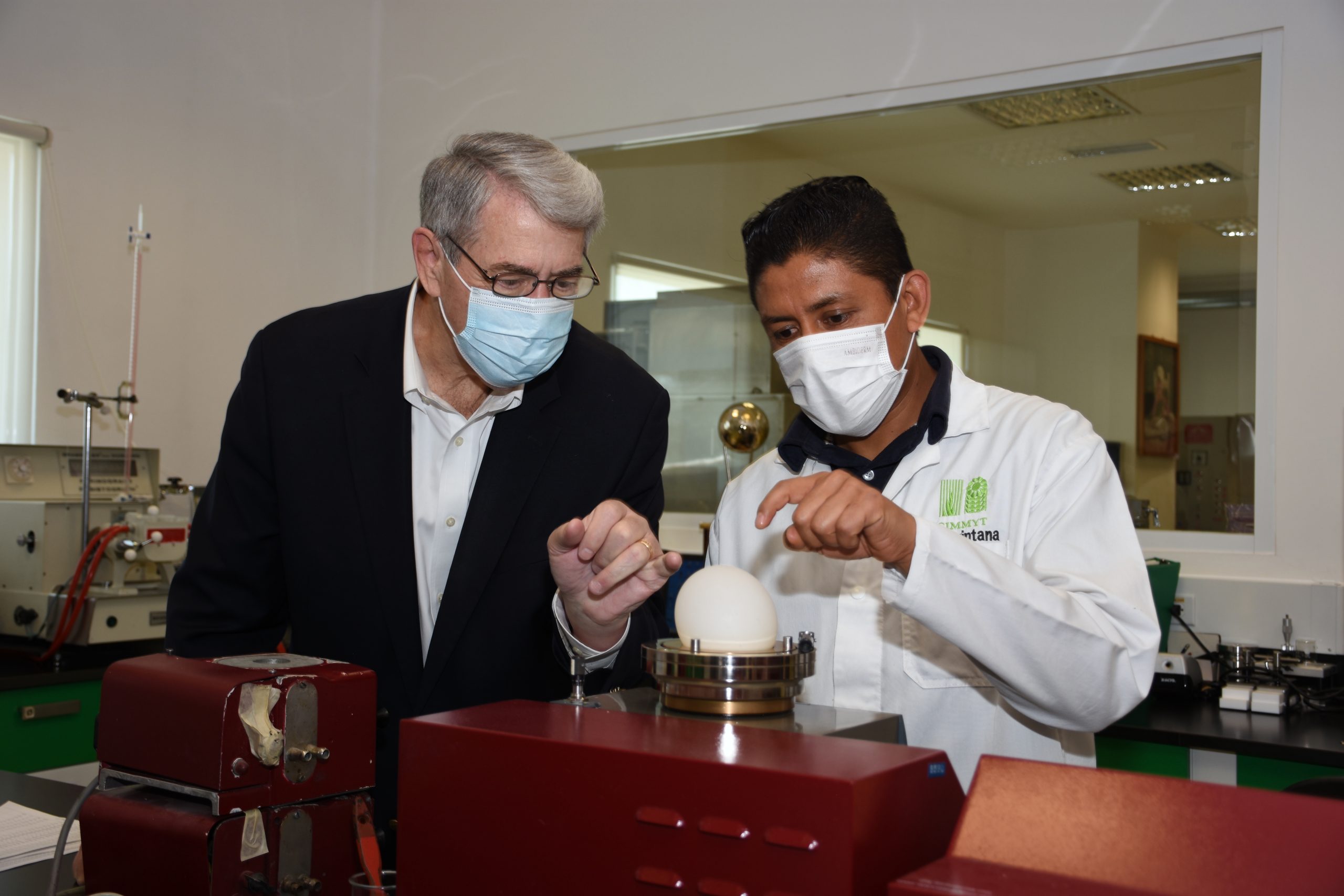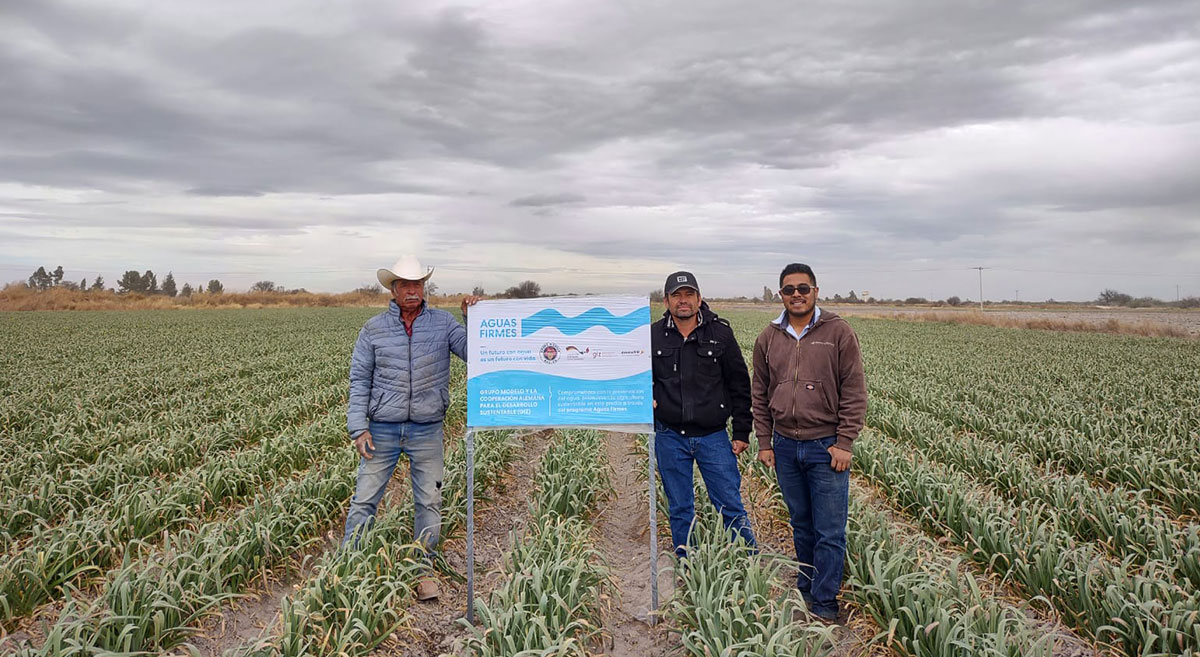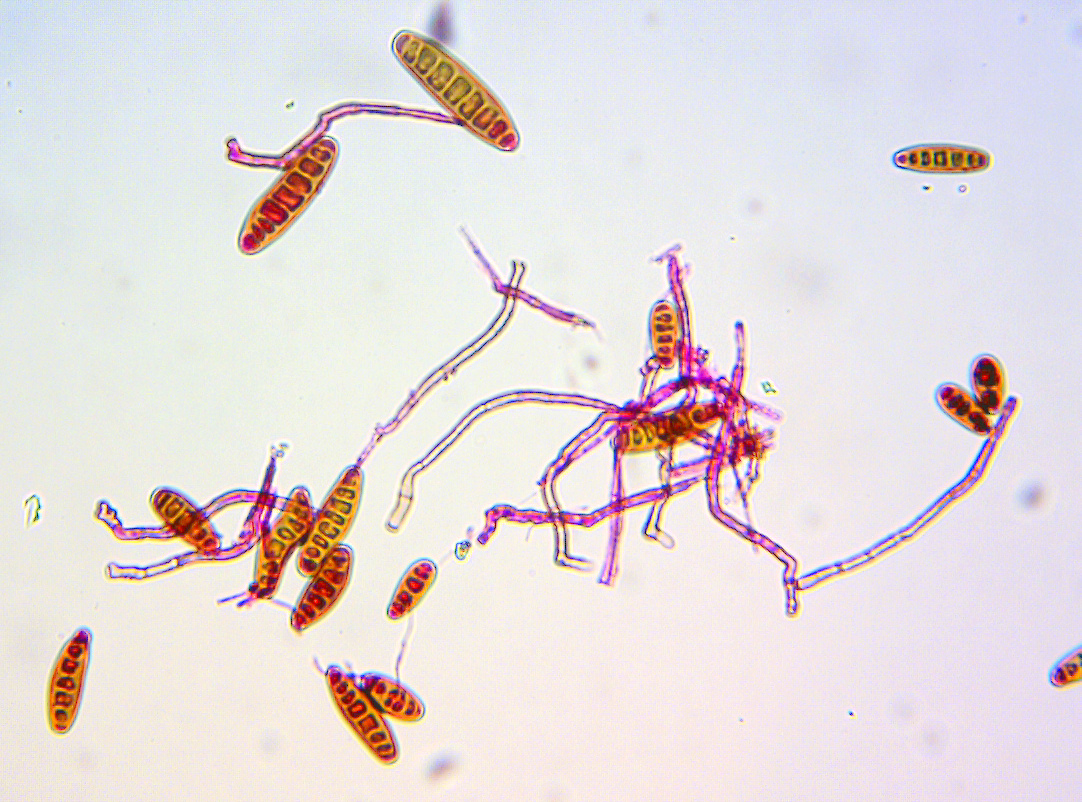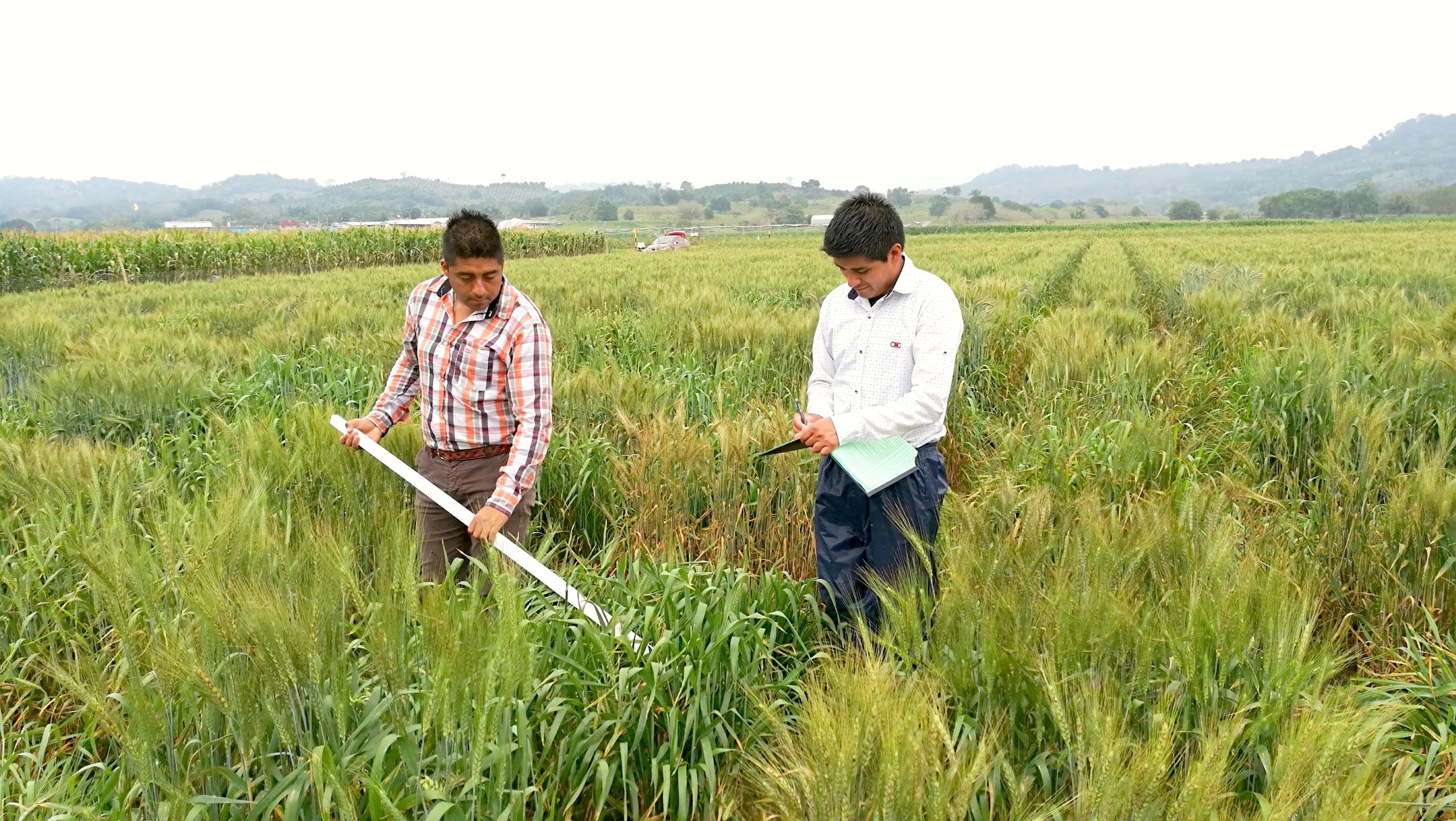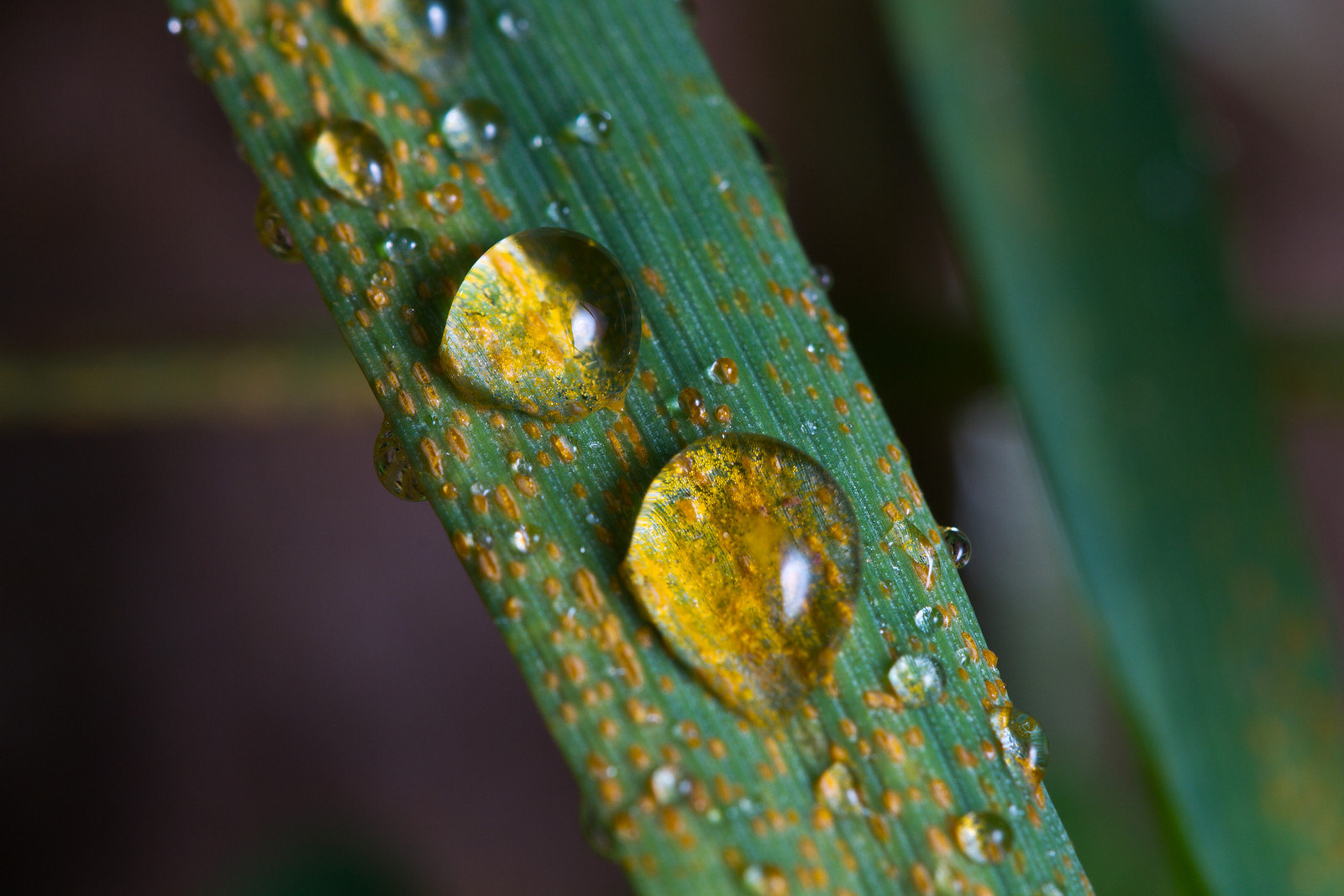Americas
CIMMYT has several offices in the Americas, including global headquarters in Mexico and a regional office in Colombia. Activities are supported by an additional 140 hectares of stations in diverse agro-ecological zones of Mexico. CIMMYT’s genebank in Mexico stores 27,000 maize and 170,000 wheat seed collections – key to preserving the crop genetic diversity of the region. CIMMYT projects range from developing nutritionally enhanced maize to mapping regional climate change hot spots in Central America. The comprehensive MasAgro project aims to increase wheat production in Mexico by 9 million tons and maize production by 350,000 tons by 2030. CIMMYT promotes regional collaboration and facilitates capacity building for scientists, researchers and technicians.
Winner of BGRI Gene Stewardship Award announced
 Environmental health and biodiversity
Environmental health and biodiversity
A research team in Mexico has been awarded the BGRI Gene Stewardship Award for their groundbreaking work on wheat breeding.
Mexican farming can transition to be more resilient with technology
 Nutrition, health and food security
Nutrition, health and food security
The Global Farmer Network share their perspective on the challenges facing farmers and global food security.
Afghan wheat landrace shows promise for rust resistance
 Environmental health and biodiversity
Environmental health and biodiversity
Genetic analysis of the Afghan wheat landrace KU3067 reveals resistance to leaf rust and stripe rust, which can be used to develop further disease-resistant wheat varieties.
Farmers’ views on app usage for information sharing
 Innovations
Innovations
Technology offers a route to better information sharing for farmers. CIMMYT research examines whether a mobile app is the right solution.
Fighting back against Ug99 wheat stem rust
 Environmental health and biodiversity
Environmental health and biodiversity
Source: Corteva (10 Aug 2022)
Genetic analysis plays a vital role in tackling crop diseases such as wheat stem rust, which can be financially devastating for farmers.
Achieving sixty years of wheat yield increase
 Nutrition, health and food security
Nutrition, health and food security
Scientists in the Yaqui Valley, Mexico, release six decades of wheat research evidencing opportunities for improved wheat growth and yield.
Understanding the role of organic material application in soil microbial community structures
 Climate adaptation and mitigation
Climate adaptation and mitigation
This metagenomics study examines how application of organic material alters soil microbial populations and functionality in soil from permanent beds with residue retention.
AgriLAC Resiliente presented in Guatemala
 Nutrition, health and food security
Nutrition, health and food security
Regional CGIAR Initiative will improve the livelihoods of farmers, and the resilience and competitiveness of agrifood systems, in Latin America and the Caribbean.
New CIMMYT maize hybrid available from the Latin America Breeding Program
 Innovations
Innovations
CIMMYT is offering a new improved maize hybrid to partners, to scale up production for farmers in the region.
The race against time to breed a wheat to survive the climate crisis
 Climate adaptation and mitigation
Climate adaptation and mitigation
Source: The Guardian (12 Jun 2022)
CIMMYT scientists are using the biodiversity of forgotten wheat varieties from across the world to find those with heat- and drought-tolerant traits.
NASDA representatives visit CIMMYT
 Nutrition, health and food security
Nutrition, health and food security
Crop science and farming research attracts interest of National Association of State Departments of Agriculture of the United States.
Two approaches better than one: identifying spot blotch resistance in wheat varieties
 Environmental health and biodiversity
Environmental health and biodiversity
Genomic selection is a promising tool to select for spot blotch resistance and index-based selection to select for spot blotch resistance, heading and plant height.
CIMMYT scientists identify novel genomic regions associated with spot blotch resistance
 Environmental health and biodiversity
Environmental health and biodiversity
Researchers use genome-wide association mapping approach to identify new regions with resistance to the disease.
Protecting plant health for food and nutritional security
 Environmental health and biodiversity
Environmental health and biodiversity
Global networks present unified and transdisciplinary strategy to protect key crops from devastating pests and diseases.
